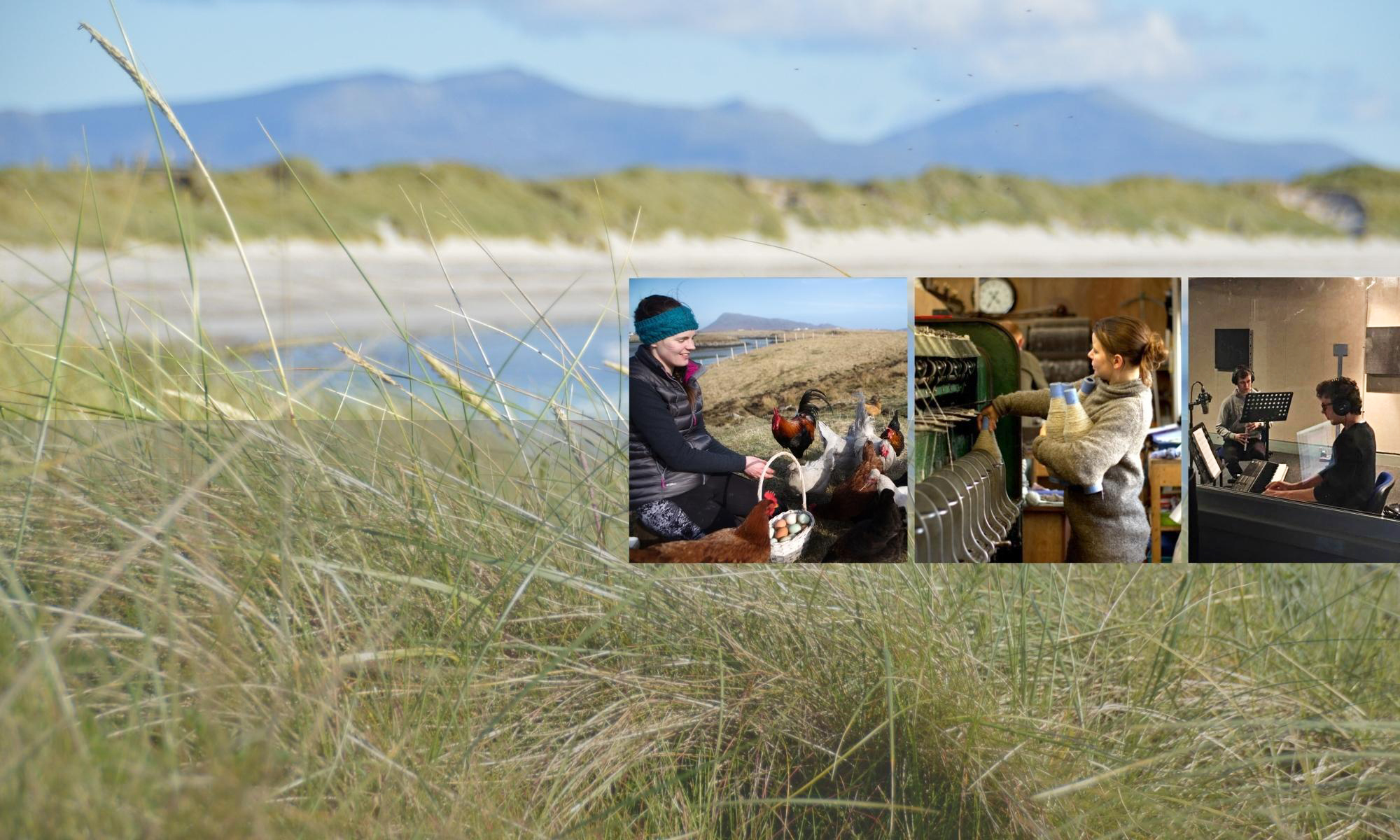by Andrew Muncaster
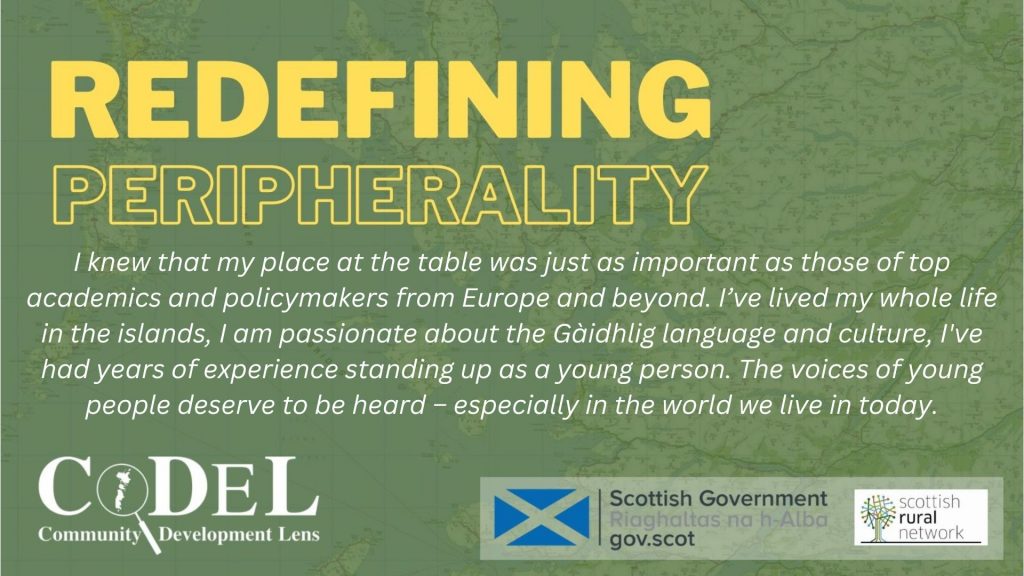
I was delighted to attend the 13th OECD Rural Conference in Cavan, Ireland last September to speak at a plenary session on young people as leaders in our rural communities.
A few weeks beforehand we were briefed on what the aims of the session were and given some guidance on what kinds of things we should try to get across to our audience. We were told to be confident, bold, and to try and get a key message out to a room full of policymakers and stakeholders. Some pressure came with such a great opportunity to speak up and get the views of myself and other young people heard on the issues facing our local areas and what policymakers – some of them sat in the room – needed to do better on.
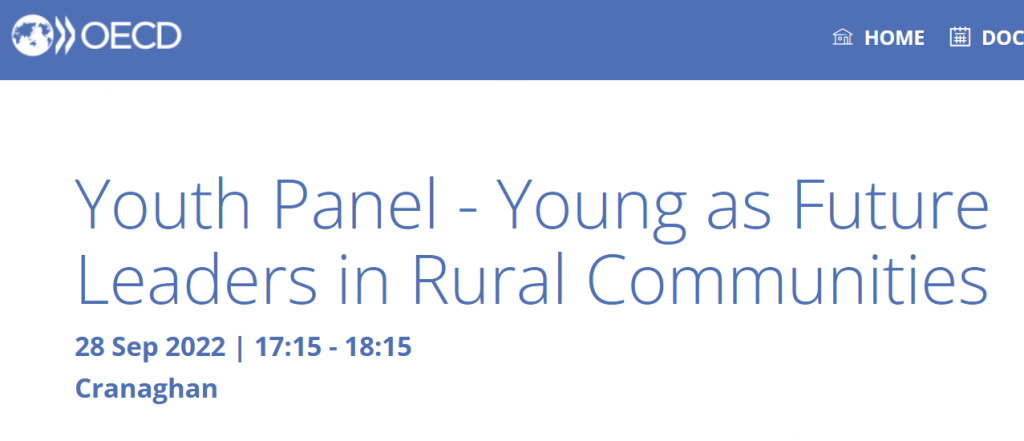
I remember first seeing my picture appear on the OECD’s website where the speakers were all listed. There I was situated right next to the then Taoiseach Micheál Martin. I could not quite believe it at first, and honestly felt a bit of imposter syndrome creep in. Who was I, a young student from a far-off island and why should anyone listen to me at this event next to top academics and policymakers from Europe and beyond? I knew, however, that my place at the table was just as important as theirs. I’ve lived my whole life in the islands, I am passionate about the Gàidhlig language and culture which is inseparable from where I am from, I have had years of experience standing up as a young person and contributing to policymaking and a range of local and national issues, and the voices of young people deserve to be heard – especially in the world we live in today.
The plenary session was exciting, engaging and elicited a fantastic response from those who sat in the room. Alana and I spoke on the key issues facing the islands, and 2 young women from Ireland spoke with passion about their rural areas as well. It was fascinating to see how much we had in common in rural Ireland and Scotland. All of us were proud of our local areas and the culture and heritage which is so strong in them, and we were passionate about the issues faced in them today.
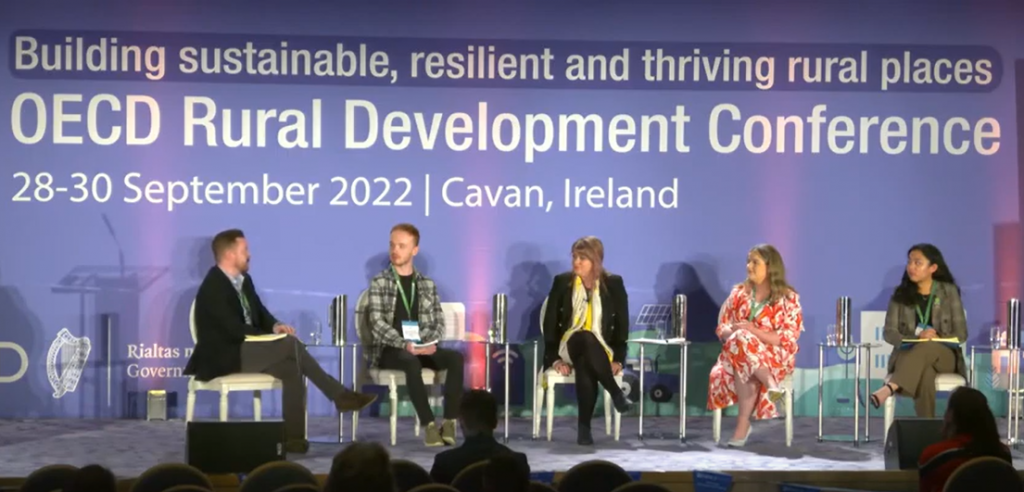
We called on policymakers to break down the barriers preventing young people from returning and to help match their aspirations with the opportunities available. We called on policymakers to directly empower communities, to bring them around the table, and to especially involve young people directly, who are vital in ensuring the continued prosperity of our rural communities, emphasising that the responsibility fell on the policymakers to reach out, to listen and to act on what we need. Our key messages were that young people do want to return, we are proud of our communities, and we need action to reduce the difficulties faced when trying to return to our rural communities. We also emphasised that young people are already leaders in our communities and that policymakers should never underestimate the power of our voices.
Our discussion and the key messages that came from all of us on the panel made a big impression on those in the audience. After a long day of academics and professionals presenting their carefully planned, long-winded, meticulous and nuanced viewpoints, it was incredibly refreshing for them to hear directly from the young people from these rural communities speaking boldly and passionately from their own life experiences and what they strongly believed was the future of their communities. We had several of the attendees speak to us after the session, praising us for being so bold and outspoken which made me feel as if I had accomplished my mission of really grabbing their attention and getting our key messages across to them. That was my first international conference, and so to have that kind of reaction was unbelievable to me, given how easily the voices of young people have been disregarded in the past.
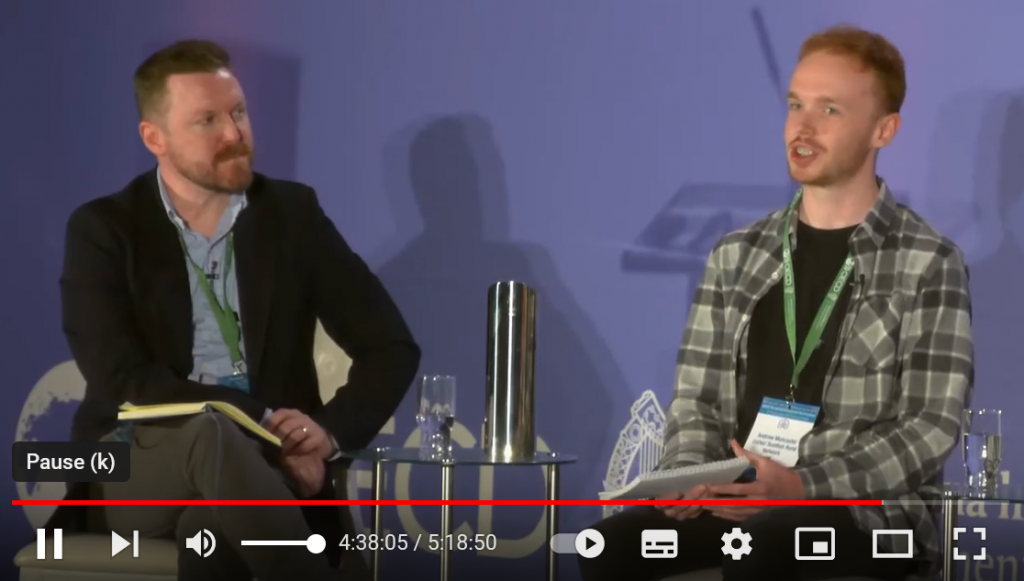
My thanks firstly go to the Scottish Rural Network for making it possible for me to attend the conference, to everyone at CoDeL who reached out and invited me to attend, and finally to the OECD for facilitating such a vitally important discussion and giving a platform to young people from rural communities to speak our truth which I think had a big impact on many of the attendees at the conference.
